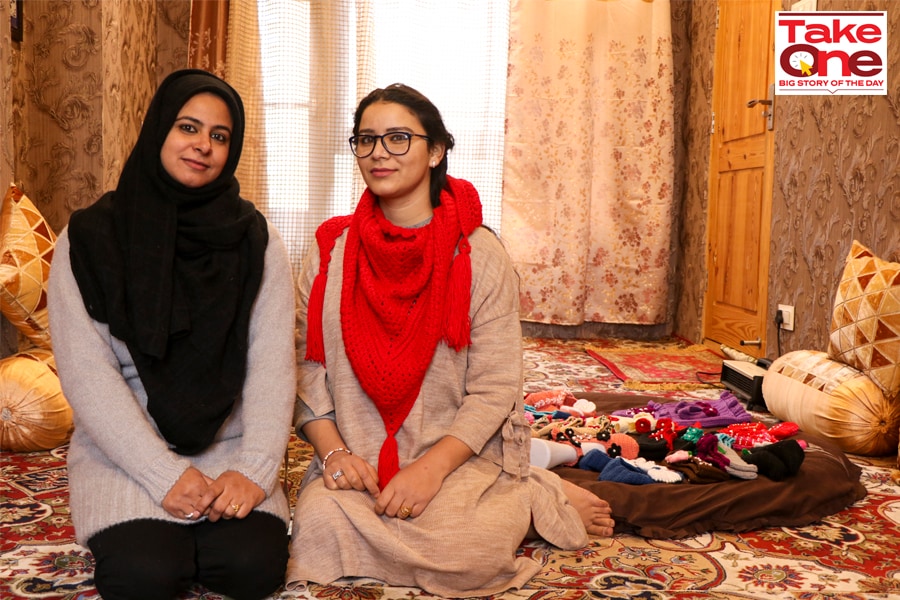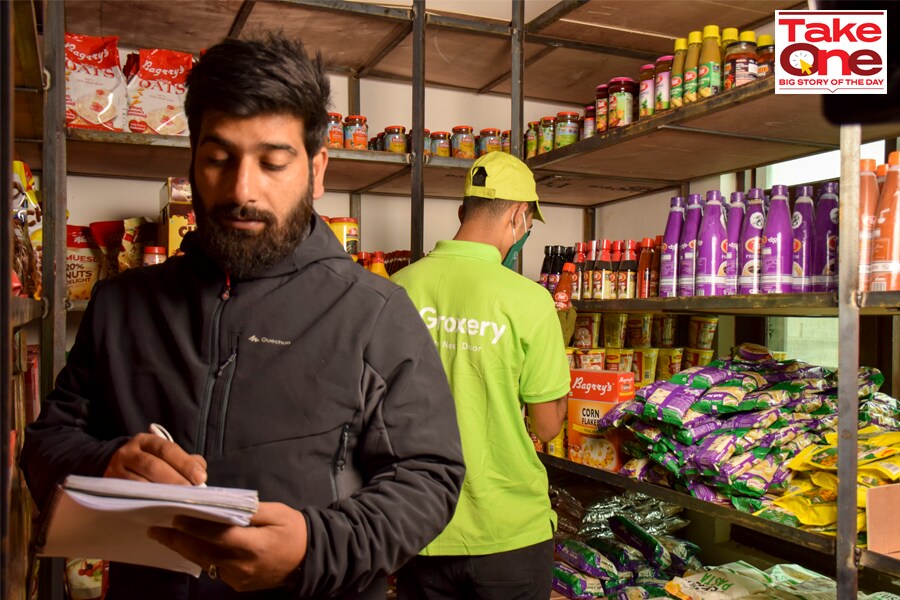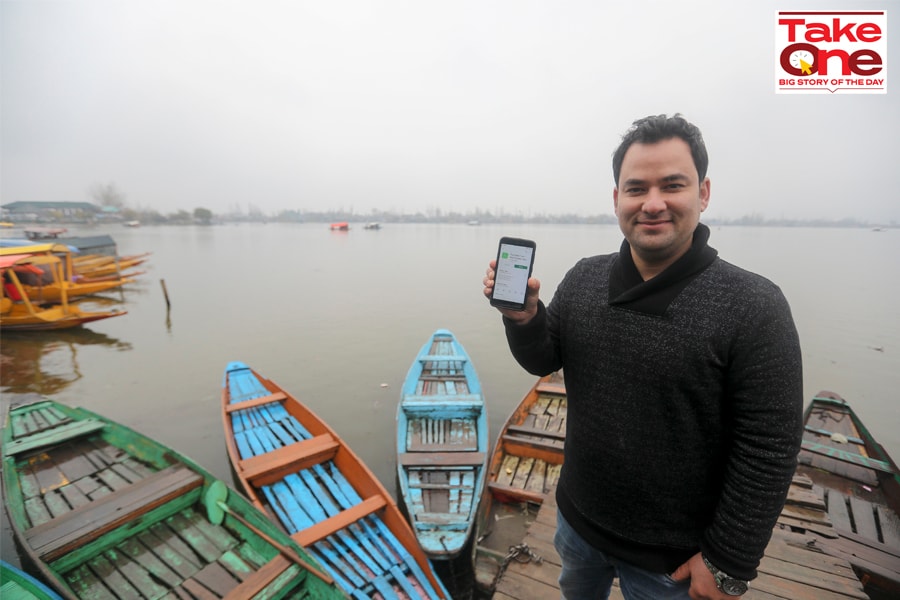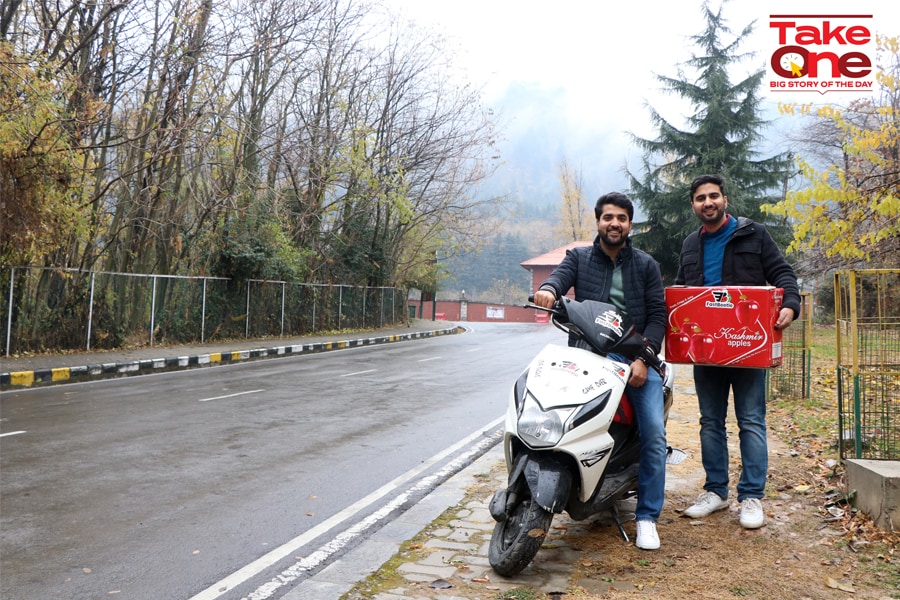The people of Jammu & Kashmir (J&K) had many stories to share. Two school teachers were excited about selling handcrafted jewellery and accessories on Instagram to buyers around the world. A man in his 20s who worked in the thick of Bengaluru’s information technology (IT) culture was taking his learnings back home. Two friends delivering parcels in Srinagar were spreading their wings online. An MBA graduate saw opportunities in the government’s ban on Chinese apps and was making the most of it. A social worker had taken it upon himself to improve the lives of schoolchildren with digital education.
Conversations with women and men of the Union Territory are peppered with aspirations that have come to define the lives of most youngsters in India—the desire to earn success, money, influence and prestige, the desire to look beyond the limited opportunities around them, the desire to solve problems, and the desire to be part of the good old startup ‘disruption’.
From being under siege for a whole year—cut off from the rest of the world with no means of communication—to now battling Covid-19 amid volatility, youngsters in J&K feel they are far from getting a level-playing field, or seeing the dizzying levels of entrepreneurial success that startup founders, innovators and businesspersons in the rest of the country get to experience. Not that it’s stopping them, but it’s certainly making it a tough fight.
![grocery_bg grocery_bg]() Malik Aadil is the founder of e-grocery startup Groxery that currently employs 40 local Kashmiri youth and services about 35 pincodes in Srinagar. He plans to expand to Jammu soon
Malik Aadil is the founder of e-grocery startup Groxery that currently employs 40 local Kashmiri youth and services about 35 pincodes in Srinagar. He plans to expand to Jammu soon
“I could have fulfilled 1,000 orders a day instead of 400 currently, and my app would have had over 100K downloads on the Play Store rather than the 50K [Android and iOS] we have today,” says Malik Aadil, a 28-year-old marketing executive who worked with SoftBank-funded e-grocer app Grofers in Bengaluru before eventually returning to his home in the Bandipora district of Kashmir this March to launch Groxery. He is referring to how 2G internet speeds currently available in the region impact scale and growth. If only there was 4G connectivity in Kashmir, he adds, many crucial aspects of his business could have been executed differently.
For example, the Groxery app—designed to meet daily grocery needs of fellow Kashmiris who were struggling to step out during the coronavirus lockdowns using learnings and guidance from Aadil’s mentors in India’s IT capital—is only 7.8 MB in size with limited features.
“We are unable to add too many features to the app—including real-time notifications, high resolution or multiple images, live tracking of orders—because if the app size increases, customers will have a problem downloading and using it. They’ll lose patience and we’ll end up losing them,” he explains. So now, delivery executives have to manually call customers for directions. “It takes at least 15 to 20 minutes for people to even search for products and add them to the cart. If only we had faster 4G internet connectivity, we could have built a much more convenient app for users.”
Since March, Aadil has invested around Rs5.5 crore in this venture, financing it with savings and revenues from his event management business. Groxery employs over 40 local Kashmiri youths and currently serves about 35 pin codes in and around Srinagar. He plans to expand to Jammu soon, apart from launching an in-house brand under which he wants to sell over 100 grocery items including honey, pulses, dry fruits, sugar, saffron etc.
In order to work around the contingencies posed by irregular and weak internet connectivity, his business model now involves taking orders through phone and WhatsApp. “This currently makes up 20 percent of our total orders,” he says.
In April, an application was filed by the Foundation for Media Professionals for a Public Interest Litigation in the Supreme Court seeking restoration of 4G services in J&K. In the application, technical analysis by Prateek Waghre, a policy research analyst at the Takshashila Institution, revealed that 2G connectivity could be up to 37 times slower than 4G. It was also observed that 2G downloads could take up to 50x longer and video playback could be 60 times slower than 4G. “A 20-minute video could take up to an hour and 36 minutes to watch completely,” the document stated.
According to The Indian Telecom Service Performance Indicator Report, there were 7.5 million internet users in J&K as of June 2020. For them, a fragile digital infrastructure filled with internet gags has been a reality for a long time now. In 2016, for instance, due to the agitation caused by the killing of Burhan Wani, leader of the separatist militant group Hizbul Mujahideen, on July 8, internet services were suspended for about 133 days, till November. Even then, mobile internet for prepaid users resumed only around January 2017, which means a full six months of shutdown, according to the Software Freedom Law Centre (SFLC).
Then, after the central government stripped the Muslim-majority region of its special status with the revocation of Article 370 in August last year, communication lines were suspended. While the government said the ban was essential for security reasons and to curb the spread of misinformation, Kashmir was without internet for 213 days between August 2019 and March 2020, according to SFLC’s Internet Shutdown Tracker. It was the longest for any democracy. When the internet was reinstated, people could only access 2G connectivity.
On November 10, the government amended the internet shutdown rules in a gazette notification and stated that internet shutdowns cannot last more than 15 days. Prasanth Sugathan, legal director, SFLC, points to the possibility that the government can still impose another shutdown after the 15-day period. “You can’t call a shutdown temporary if you keep repeating it again and again,” he says. “It’s time to approach the courts once more. How can you expect an entire population to lead a normal life in this day and age with a patchy 2G connection? Shouldn"t the government be more proactive about addressing this?”
Sheikh Ashiq Ahmad, president, Kashmir Chamber of Commerce and Industry, states that the government has a monthly meeting to review the internet situation, but “till date, there is no concrete policy decision taken with regards to improving data connectivity”. He adds that as of August 2020, a year since the shutdown, five lakh people lost jobs and businesses in the region have incurred a loss of Rs40,000 crore. “We have been encouraging business units to find ways to keep operations on, but it’s difficult, especially during the pandemic that has forced things to go online. Better sense must prevail among the government to take this into consideration.”
Everything is Connected
Digital entrepreneurs and innovators in Kashmir say that not many people outside big cities like Srinagar, Baramulla and Anantnag are exposed to the livelihood potential and convenience offered by the internet and mobile applications. This makes it difficult for tech-led services or products to expand their customer base, and not being able to show strong numbers for the latter puts off many investors. Aadil of Groxery believes that youngsters are increasingly leveraging social media and the internet to start up and be independent, thereby moving away from the region’s long-standing convention of finding a comfort zone in government jobs in the absence of private sector opportunities.
![tipu sultan_bg tipu sultan_bg]() Tipu Sultan Wani, 31, has developed local alternatives for Chinese short-video app TikTok and file sharing app ShareIt along with his brother Mohd Farooq
Tipu Sultan Wani, 31, has developed local alternatives for Chinese short-video app TikTok and file sharing app ShareIt along with his brother Mohd Farooq
Image: Kamran Yousuf for Forbes IndiaApp developer Tipu Sultan Wani, a resident of Chadoora in Budgam district, concurs with Aadil’s perspective. The 31-year-old MBA graduate is an example of the shift among the youth in Kashmir where the penchant for jugaad [problem-solving with limited resources and constraints] is stirring more creativity and innovation. Along with his 33-year-old brother Mohd Farooq, Wani developed a local alternative for short-video platform TikTok called ‘Nucular’ in November, after the hugely popular ByteDance-owned app was banned by the central government along with 58 other Chinese apps in July following border tensions with China. Wani and his brother have also developed an alternative for banned file-sharing app ShareIt.Nucular, even with its live-streaming feature, is built to be 2G-compatible and also enables people to earn points for just logging on the app. “Each day you log in, you will get five points. Each point is equal to Rs0.75. For every 50 likes on a video, the creators also get one point. These can be accumulated and later redeemed for money,” he says.
The duo’s alternative to ShareIt, called File Share Tool, does not even require Bluetooth connectivity to transfer heavy files like its Chinese counterpart, Wani explains. Its technology called SoftAP [abbreviation for software-enabled access portal] uses the Wi-Fi radio built into every mobile device to help create a personal network that other devices can pair with in order to send or receive files. A QR code in the app helps connect the devices.
Wani says his brother and he keep shuttling between Delhi and Srinagar. “It’s just impossible to develop applications or websites with 2G connectivity.” According to him, the inaccessibility to funding, exposure and other resources is definitely restrictive, given that other India-made short video apps like Mitron, Josh and Moj have had access to bigger, faster platforms to build their products, and also a larger pool of consumers and investors. “As we speak, our File Share app has over 18,000 downloads, while Nucular, within three weeks of its launch in early November, is inching toward the 5,000 mark. We consider that a very good response.”
![fastbeetle ky_06_bg fastbeetle ky_06_bg]() (From left) Sheikh Samiullah and Abid Rashid Lone, co-founders of online logistics company FastBeetle, are working on a partnership with a global ecommerce major to operate a logistics centre from Kashmir
(From left) Sheikh Samiullah and Abid Rashid Lone, co-founders of online logistics company FastBeetle, are working on a partnership with a global ecommerce major to operate a logistics centre from Kashmir
Image: Kamran Yousuf for Forbes IndiaA few other entrepreneurs are collaborating with larger companies outside J&K to enable their own expansion outside of Kashmir and help boost the local economy. Sheikh Samiullah, co-founder of FastBeetle, says their digital logistics startup is striking a partnership with a global ecommerce major to help them open a last-mile delivery centre in Kashmir.
Along with co-founder Abid Rashid Lone, Samiullah says he launched FastBeetle in August 2018, exactly a year before the abrogation of Article 370, because last-mile delivery connectivity was an issue in Kashmir, and “large companies like BlueDart were not present everywhere because the volumes in our region were low”. The startup today has around 500 enterprise clients, about 80 percent of which are small businesses run by women. The duo also helps deliver fresh produce like Kashmiri apples directly from farmers to the customers, eliminating middlemen.Samiullah says while they were on the verge of drawing the blinds of their startup because orders had reduced to zero during the internet shutdown, the onset of the pandemic turned their fortunes around. “During the lockdown, we started delivering medicines, groceries and other essentials to people. We started receiving around 300 orders a day during the lockdown. Now, between 100 and 150 orders are executed daily,” he says.
Lone explains that they have the potential to complete around 6,000 orders a month, but are currently doing only half of it, because “many people do not have the patience for the page to load and place the order. So we are also not able to work to our best capacity”. There is no support from the local government, he adds, and it’s up to individual entrepreneurs to “figure it out themselves”. “I don’t see digital infrastructure strengthening anytime soon and I haven’t seen a positive development for many days now, but entrepreneurs here are trying their best despite everything,” he says.
Passing It On
Almost every young Kashmiri that Forbes India spoke with stressed on the need to hand-hold others and guide them on how to navigate an incongruous system. “We need to teach people at a young age about how technology can be used to enhance creative skills, mitigate mental health stress, and solve day-to-day life problems,” says Omar Hafiz, a development worker. He is conducting school programmes so that children exposed to volatility could apply digital skills to their immediate surroundings, can become cognisant about the problems around them and develop a solution-driven mindset.
Along with friend Shoaib Dar, who is the founder of the non-profit Pi Jam Foundation, Hafiz is now working with about 400 students in five schools across different districts. “One of our biggest challenges has been the digital divide. Mere 15 percent of our students in Kashmir have decent internet, around 40 to 50 percent have low access and the rest have zero connectivity,” says Dar.
So the programme is shaped accordingly. For those who have low access, they are developing live sessions on platforms that work on low bandwidth. This also includes sharing compressed files of less than 100 MB that are easily downloadable on WhatsApp, pre-recorded videos, or long videos broken into slides. For students with no internet access, they deliver offline computer science activity kits to their homes.
Dar and Hafiz launched the digital learning programme in November and plan to reach 10 schools by March 2021. “By the end of our third year in Kashmir, we aim to transform 100 government and affordable private schools into innovative spaces that foster digital and problem-solving skills. At the same time, we are also looking to build the capacity of over 100 maths and science teachers so they can better leverage their computer science skills and use technology to help the kids innovate,” says Dar.
Omaira Khan and Binish Basheer Khan, two school teachers who monetised their hobby of making crochet and floral jewellery through an Instagram business called Craft World Kashmir, have also taken 16 girls under their wing. Omaira realises that for women in the region, the internet is not only a lucrative platform for business, but also a safe space. “We cannot own or rent property because we do not have access to funds to invest. We can’t even risk having a physical outlet because there is no saying when the situation will get volatile,” she says.
The drive to be economically independent while guiding the next generation of women entrepreneurs keeps the duo motivated. “But you need a lot of patience to do business here,” Omaira confesses. The list of hurdles could range from each Instagram post taking 15 to 20 minutes to upload, to internet shutdowns causing tremendous damage to the business.
The duo, who claims to be the first-movers in Kashmir when it comes to making unique crochet and floral jewellery designs, and whose Instagram page has over 60,000 followers, currently receives over 600 orders a month. It is just beginning to emerge out of the losses borne during the shutdown. “June-August is when we receive maximum orders, and on the day of the communication shutdown last year, we had ready-to-ship material worth Rs1 lakh that we just couldn’t deliver. Woh hamaare sarr aa gaya (we had to bear those losses),” Omaira says, adding that between August 2019 and March 2020, they lost out on business worth Rs20 lakh. And just when they started receiving erratic internet connectivity, the lockdowns were imposed.
Despite reeling under the pressure of bouncing back, Omaira and Binish do not intend to give up. They dipped into their savings, invested more money and continue to pay the 16 girls employed with them. “For many of these girls, the salaries we pay is the only source of income,” says Omaira, adding that big or small, easy or difficult, her “business empire” is here to stay.
“Sometimes, we feel like there’s no point in trying to do something new because the system won’t let us. We are getting no exposure, there is no one to guide us,” continues Omaira, after a pause. “I think they have still not understood that it’s not just about curbing the internet connection, but also our dreams, our ideas and our livelihoods.”

 (From left) Omaira Khan and Binish Basheer Khan are working hard to run their Instagram business Craft World Kashmir despite losses borne during the internet shutdown and the pandemic. The internet, they say, is not just an avenue for business, but also a safe space for women entrepreneurs in the region
(From left) Omaira Khan and Binish Basheer Khan are working hard to run their Instagram business Craft World Kashmir despite losses borne during the internet shutdown and the pandemic. The internet, they say, is not just an avenue for business, but also a safe space for women entrepreneurs in the region  Malik Aadil is the founder of e-grocery startup Groxery that currently employs 40 local Kashmiri youth and services about 35 pincodes in Srinagar. He plans to expand to Jammu soon
Malik Aadil is the founder of e-grocery startup Groxery that currently employs 40 local Kashmiri youth and services about 35 pincodes in Srinagar. He plans to expand to Jammu soon Tipu Sultan Wani, 31, has developed local alternatives for Chinese short-video app TikTok and file sharing app ShareIt along with his brother Mohd Farooq
Tipu Sultan Wani, 31, has developed local alternatives for Chinese short-video app TikTok and file sharing app ShareIt along with his brother Mohd Farooq (From left) Sheikh Samiullah and Abid Rashid Lone, co-founders of online logistics company FastBeetle, are working on a partnership with a global ecommerce major to operate a logistics centre from Kashmir
(From left) Sheikh Samiullah and Abid Rashid Lone, co-founders of online logistics company FastBeetle, are working on a partnership with a global ecommerce major to operate a logistics centre from Kashmir